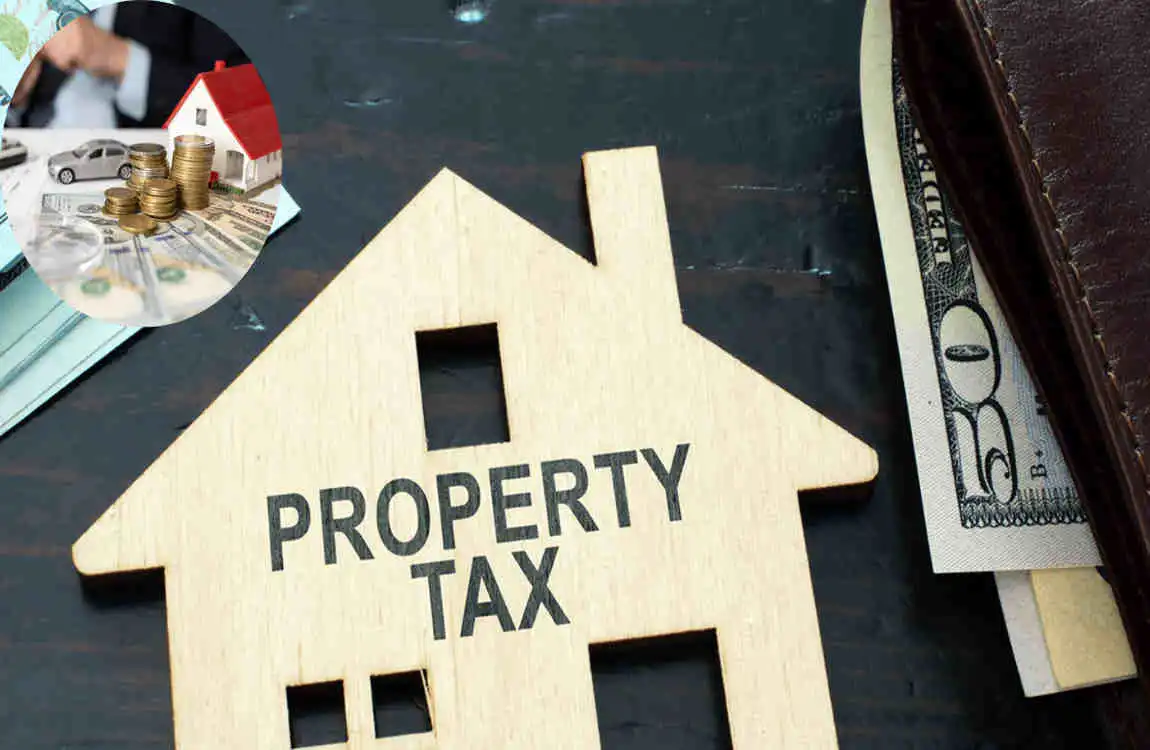Real estate taxes and property taxes are closely related but not precisely the same. Real estate taxes specifically refer to taxes on the assessed value of land and any structures attached to it, such as a house, which homeowners pay annually to their local government. Property taxes, on the other hand, can include real estate taxes but also extend to taxes on different types of personal property like cars, boats, or business equipment. Often, people use these terms interchangeably when talking about the taxes on their home, but technically, property taxes cover a broader range of taxable possessions beyond real estate.
Understanding Real Estate Taxes and Property Taxes

Real estate taxes and property taxes are terms that often get used interchangeably, but they have subtle differences. Real estate tax generally refers to a tax levied on the value of land and any structures attached to it. This includes residential homes, commercial buildings, and industrial properties.
On the other hand, property tax is a broader term that encompasses various types of taxes imposed on real estate assets. It can include not just the value of physical structures but also personal property like vehicles or equipment in some jurisdictions.
Both forms of taxation serve as crucial funding sources for local governments. They help fund essential services, including schools, infrastructure maintenance, public safety, and community programs. Understanding these distinctions can empower homeowners to manage their finances better and engage meaningfully with local governance.
Differences Between Real Estate Taxes and Property Taxes
Real estate taxes and property taxes are often used interchangeably, but they can have distinct meanings depending on the context.
Real estate taxes generally refer to the broader category of taxes levied on real property. This includes land and any structures built upon it. These taxes fund various local services like schools, roads, and emergency services.
On the other hand, property taxes specifically focus on the valuation of an individual’s personal or tangible assets. This may include not just real estate but also vehicles or business equipment in some jurisdictions.
The terminology sometimes varies by state or locality. In some regions, “property tax” encompasses all forms of taxation related to ownership, while others might reserve that term strictly for real estate holdings.
Understanding these nuances can help homeowners better navigate their financial obligations. It’s essential to know how your locality defines these terms when reviewing your tax statements real estate.
How Are Real Estate Taxes Calculated?

Real estate taxes are primarily based on the assessed value of your property. Local tax assessors evaluate homes, considering various factors like location, size, and condition. This assessment helps determine how much you’ll owe.
Once the assessed value is established, it’s multiplied by the local tax rate. Tax rates can vary significantly between municipalities. They often change annually based on budget needs or voter-approved measures.
Some areas may also apply exemptions that can reduce your taxable amount. Common examples include homestead exemptions for primary residences or senior citizen credits.
It’s essential to stay informed about these evaluations and any changes in tax rates. Understanding this process empowers homeowners to manage their finances effectively while ensuring they’re not overpaying on taxes each year.
How Are Property Taxes Calculated?
Property taxes are primarily based on the assessed value of your home. Local governments determine this value through a property assessment process, which evaluates various factors.
Assessors consider the size, location, and condition of your property. They might also look at nearby sales to gauge market trends. This analysis helps establish what your home is worth in today’s market.
Once they have an assessed value, it gets multiplied by the local tax rate. This rate can vary significantly depending on where you live since different municipalities have unique funding needs for schools, infrastructure, and public services.
It’s essential to keep track of any changes in assessments or tax rates over time, as these can impact how much you owe each year. Understanding this calculation empowers homeowners to scrutinize their bills if something appears to be amiss or unfair.
You may also read (what should know about mobile home valuation).
The Impact of Real Estate and Property Taxes on Homeowners
Real estate and property taxes significantly influence homeowners’ financial health. These taxes often account for a substantial portion of monthly expenses, affecting budgets and savings.
When tax rates increase, many families feel the pinch. Adjusting to higher payments can be challenging, forcing some to rethink their housing options or lifestyle choices.
Investment decisions are affected, too. High tax bills can deter potential buyers and diminish property values over time. This creates a ripple effect in the real estate market, leading to longer selling times or lower offers.
Understanding these impacts is essential for any homeowner navigating today’s complex market landscape. It helps in making informed decisions about living arrangements and future investments.
Tips for Lowering Your Real Estate/Property Tax Bill
Start by reviewing your property tax statement. Ensure that all information is accurate, including square footage and any recent improvements you’ve made. Mistakes happen, and correcting them could lead to savings.
Consider appealing your property assessment if you believe it’s too high—research comparable properties in your area for a stronger case.
Look into exemptions or deductions you may qualify for. Many states offer programs for seniors, veterans, or first-time homebuyers that can significantly reduce your tax burden.
Another effective strategy is to monitor local market trends. If home values have dropped in your neighborhood, inform the assessor’s office; they might reassess accordingly.
Maintain good documentation of repairs and upgrades on your property. Some expenses may be deductible when calculating taxes or during appeals processes.
You may also read (are you a home lessor key tips for residential house rentals).
